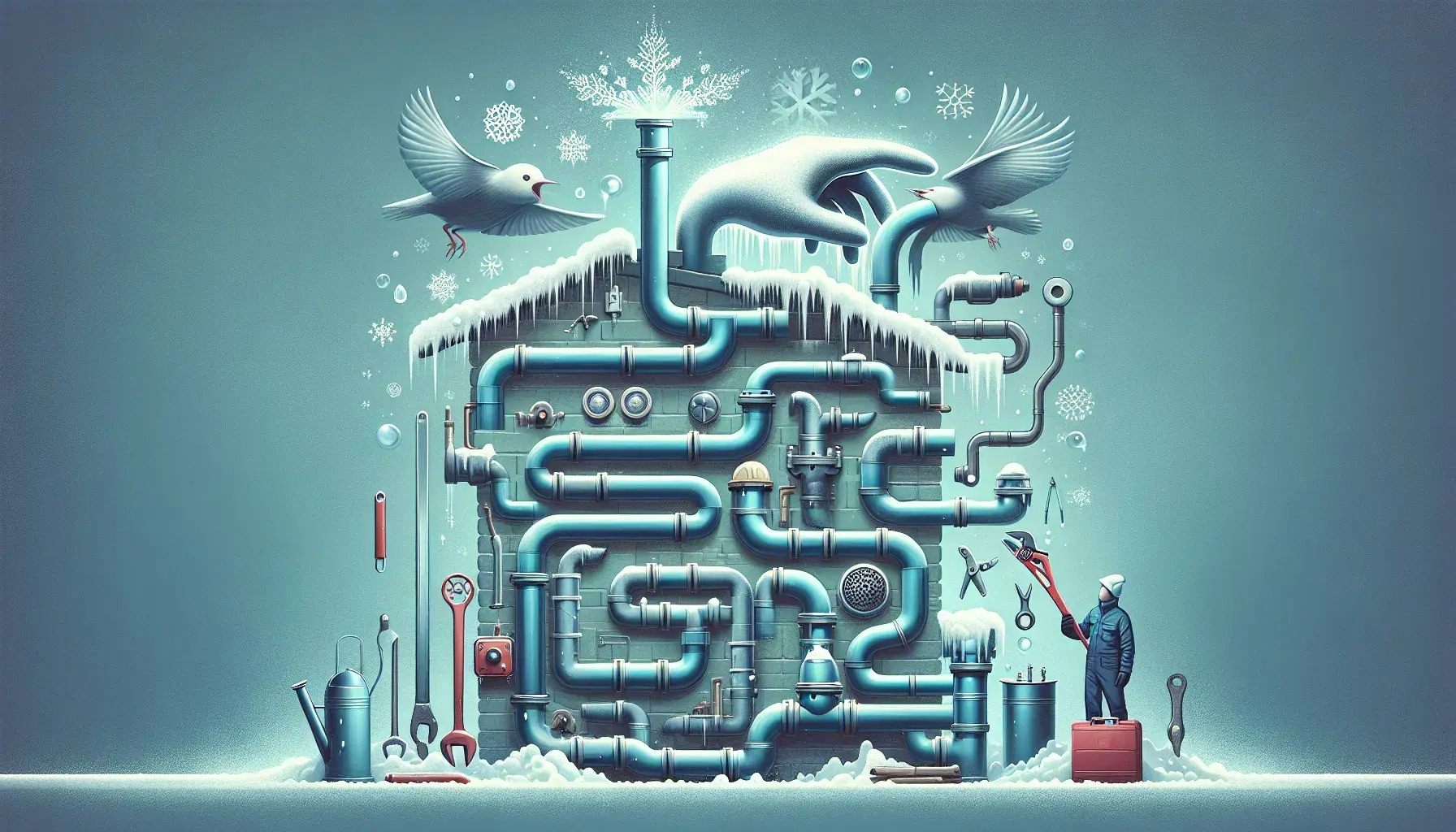How to Prevent Frozen Pipes
PlumberExperts.co

Winter brings with it a host of challenges, one of which is the risk of frozen pipes. This common problem can lead to significant damage and costly repairs. This blog post will guide you through various strategies to prevent your pipes from freezing. We'll delve into understanding why pipes freeze, the signs of frozen pipes, and practical steps to protect your plumbing system during the coldest months of the year.
Understanding Why Pipes Freeze
Pipes freeze due to a combination of three factors: exposure to cold, inadequate insulation, and a drop in temperature. When the temperature outside drops significantly, the water inside the pipes can freeze. This creates pressure inside the pipe, which can cause it to burst.
Pipes located in unheated interior spaces such as basements, attics, and garages are more likely to freeze. Also, pipes running along exterior walls with little insulation are at risk.
Understanding the reasons behind frozen pipes is the first step towards prevention. With this knowledge, you can take proactive measures to protect your pipes and avoid the inconvenience and expense of dealing with burst pipes.
Recognizing the Signs of Frozen Pipes
Early detection of frozen pipes can help prevent them from bursting. Some signs to watch out for include reduced or no water flow from faucets, frost on exposed pipes, and strange smells from drains or faucets.
If you turn on a faucet and only a trickle comes out, it might indicate a frozen pipe. Frost on a pipe, even an insulated one, can be a sign of freezing. Unusual smells can be a result of blockage in the pipe, causing odors to come back up through the drains.
In case you notice any of these signs, it's crucial to act swiftly to thaw the pipes and prevent further damage.
Insulating Your Pipes
One of the most effective ways to prevent pipes from freezing is insulation. Insulating your pipes provides a protective barrier between the cold air and your pipes.
There are several ways to insulate your pipes. Pipe sleeves, heat tape, and heat cables are available at most hardware stores and can be easily installed. For pipes located in hard-to-reach areas, consider using spray foam insulation.
Remember to pay special attention to pipes located in unheated areas of your home. These pipes are more susceptible to freezing and should be insulated first.
Keeping a Steady Temperature
Maintaining a consistent temperature in your home can help prevent pipes from freezing. It's recommended to set your thermostat to the same temperature during the day and night. This constant warmth can help keep the pipes from freezing.
While it might increase your heating bill, it can prevent a much more costly pipe burst. If you plan to be away during cold weather, leave the heat on in your home and set it to a temperature no lower than 55°F.
Letting Faucets Drip
If you're dealing with extremely cold weather, letting your faucets drip can prevent pipes from freezing. Running water, even at a trickle, helps prevent a hard freeze.
This method is particularly useful for pipes that run against exterior walls. While it might seem like a waste of water, it can be a small price to pay compared to the cost of repairing a burst pipe.
Sealing Leaks and Drafts
Cold air can enter your home through leaks and drafts. These can be around windows and doors, or where plumbing enters the house. Sealing these leaks can help keep cold air away from your pipes and prevent them from freezing.
Use caulk or insulation to seal leaks around windows and doors. For larger gaps where the plumbing enters the house, use spray foam insulation or filler.
Wrapping Up: Preventing Frozen Pipes
As we've explored, preventing frozen pipes involves understanding why they freeze, recognizing the signs, and taking proactive measures like insulating pipes, maintaining a steady temperature, letting faucets drip, and sealing leaks. By implementing these strategies, you can protect your home from the costly and inconvenient damage caused by frozen pipes. Remember, prevention is always better than cure, especially when it comes to your home's plumbing system.